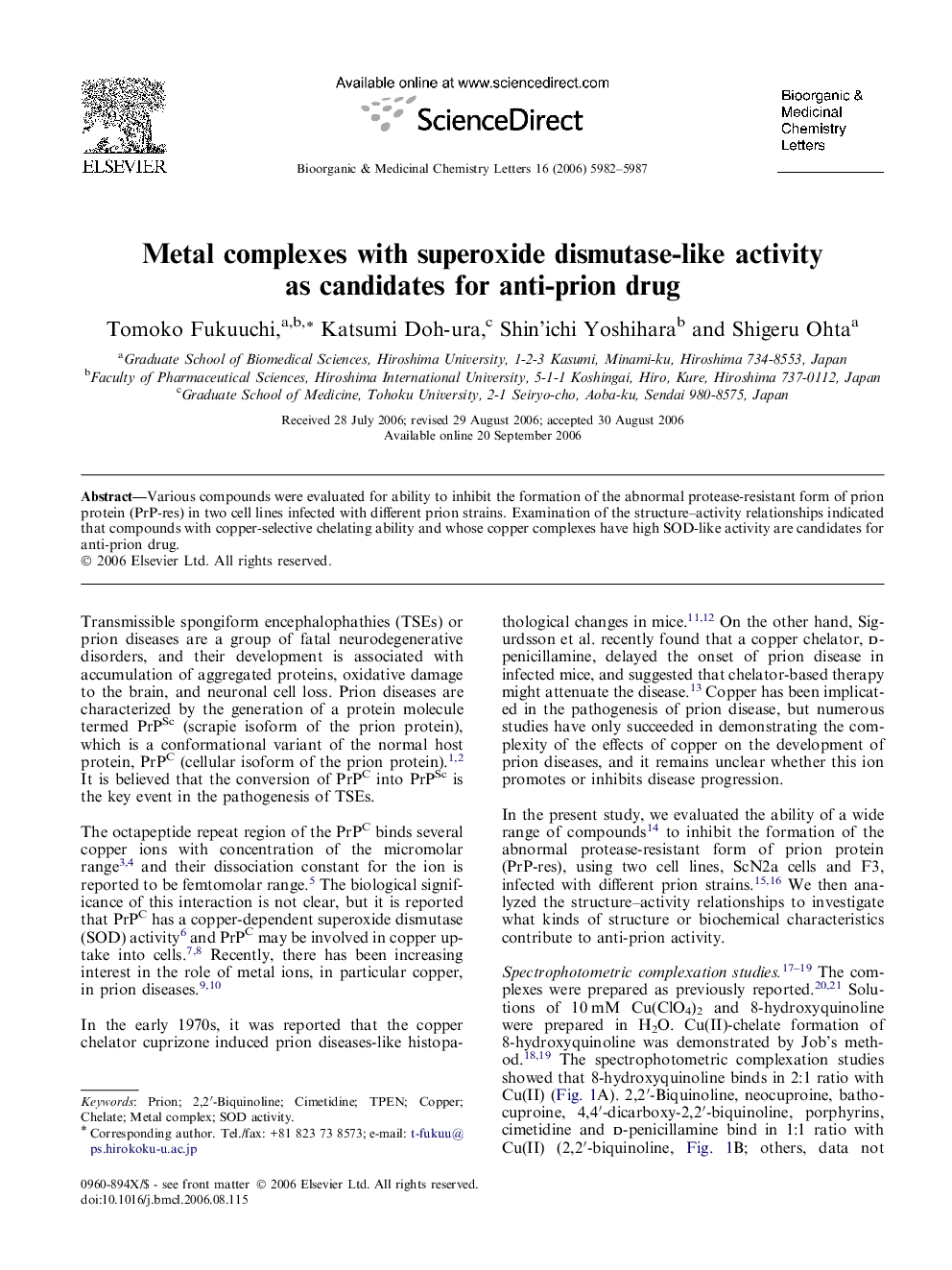| Article ID | Journal | Published Year | Pages | File Type |
|---|---|---|---|---|
| 1367161 | Bioorganic & Medicinal Chemistry Letters | 2006 | 6 Pages |
Abstract
Various compounds were evaluated for ability to inhibit the formation of the abnormal protease-resistant form of prion protein (PrP-res) in two cell lines infected with different prion strains. Examination of the structure–activity relationships indicated that compounds with copper-selective chelating ability and whose copper complexes have high SOD-like activity are candidates for anti-prion drug.
Graphical abstractThe compounds whose metal complexes had high SOD-like activity, 2,2′-biquinoline, cimetidine, and TPEN, had values of 50%-inhibitory concentration for PrP-res formation (IC50) of <10 nM in ScN2a cells.Figure optionsDownload full-size imageDownload as PowerPoint slide
Related Topics
Physical Sciences and Engineering
Chemistry
Organic Chemistry
Authors
Tomoko Fukuuchi, Katsumi Doh-ura, Shin’ichi Yoshihara, Shigeru Ohta,
